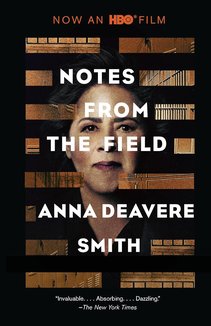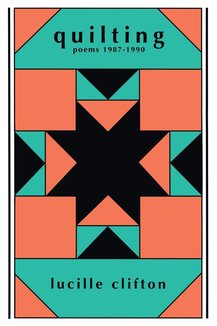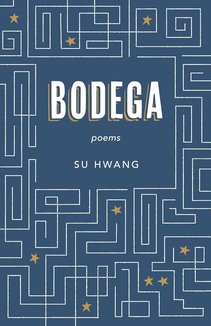Recommended Books

Notes from the Field
Author:
Anna Deavere Smith
ISBN 13:
978-0525564591
"Smith’s powerful style of living journalism uses the collective, cathartic nature of the theater to move us from despair toward hope.” — The Village Voice Anna Deavere Smith’s extraordinary form of documentary theater shines a light on injustices by portraying the real-life people who have experienced them. "One of her most ambitious and powerful works on how matters of race continue to divide and enslave the nation” ( Variety). Smith renders a host of figures who have lived and fought the system that pushes students of color out of the classroom and into prisons. (As Smith has put it: “Rich kids get mischief, poor kids get pathologized and incarcerated.”) Using people’s own words, culled from interviews and speeches, Smith depicts Rev. Jamal Harrison Bryant, who eulogized Freddie Gray; Niya Kenny, a high school student who confronted a violent police deputy; activist Bree Newsome, who took the Confederate flag down from the South Carolina State House grounds; and many others. Their voices bear powerful witness to a great iniquity of our time—and call us to action with their accounts of resistance and hope.

Quilting: Poems 1987-1990 (American Poets Continuum Series, Vol. 21)
Author:
Lucille Clifton
ISBN 13:
978-0918526816
Brilliantly honed language, sharp rhythms and striking syntax empower Lucille Clifton's personal and artistic odyssey. Hers is poetry of birth, death, children, community, history, sexuality and spirituality, and she addresses these themes with passion, humor, anger and spiritual awe.

Bodega: Poems
Author:
Su Hwang
ISBN 13:
978-1571315243
Finalist for the 2021 Kate Tufts Discovery Award Winner of the 2020 Minnesota Book Award in Poetry Against the backdrop of the war on drugs and the 1992 Los Angeles Riots, a Korean girl comes of age in her parents’ bodega in the Queensbridge projects, offering a singular perspective on our nation of immigrants and the tensions pulsing in the margins where they live and work. In Su Hwang’s rich lyrical and narrative poetics, the bodega and its surrounding neighborhoods are cast not as mere setting, but as an ecosystem of human interactions where a dollar passed from one stranger to another is an act of peaceful revolution, and desperate acts of violence are “the price / of doing business in the projects where we / were trapped inside human cages—binding us / in a strange circus where atoms of haves / and have-nots always forcefully collide.” These poems also reveal stark contrasts in the domestic lives of immigrants, as the speaker’s own family must navigate the many personal, cultural, and generational chasms that arise from having to assume a hyphenated identity—lending a voice to the traumatic toll invisibility, assimilation, and sacrifice take on so many pursuing the American Dream. “We each suffer alone in / tandem,” Hwang declares, but in Bodega , she has written an antidote to this solitary hurt—an incisive poetic debut that acknowledges and gives shape to anguish as much as it cherishes human life, suggesting frameworks for how we might collectively move forward with awareness and compassion.